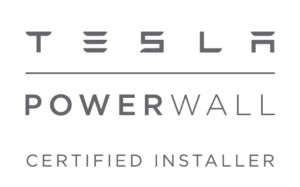Solar energy is revolutionizing the way commercial buildings in Massachusetts power their operations. With supportive policies, solar panels offer a sustainable and cost-effective solution for businesses looking to reduce energy costs, lower their carbon footprint, and demonstrate corporate social responsibility. In this blog, we will explore the power of solar panels for commercial buildings in Massachusetts and the benefits they bring to businesses.
Financial Benefits
One of the primary advantages of installing solar panels on commercial buildings in Massachusetts is the financial benefits they provide. The Federal Solar Tax Credit* (officially called the ITC, or Investment Tax Credit) allows businesses to claim 30% of the total cost of their solar energy system as a tax credit on their federal taxes, and roll any remaining balance forward. Accelerated MACRS depreciation speeds up your solar ROI and reduces your tax liability over a 5-year cost recovery. Bonus depreciation is also available at the Federal level consult your tax adviser on how this may apply to your business or individual situation. For 2024, bonus depreciation is currently set at 60% bonus in year one. Over time, businesses can see a substantial return on investment through energy savings and incentives.
*We are not tax advisers and this information is only to provide an outline of the potential tax benefits.
Energy Cost Savings
By generating their own clean energy from solar panels, commercial buildings can significantly reduce their reliance on grid electricity, leading to substantial cost savings on energy bills. Solar energy systems have a long lifespan and require minimal maintenance, providing businesses with a stable and predictable source of electricity for years to come. With rising energy costs and volatile energy markets, investing in solar panels can help businesses hedge against future price increases and improve their bottom line.
Commercial Solar Leasing
For the greatest financial benefit, owning your commercial solar array is best. That said, commercial solar leasing could make sense for some. For example, if you own a large industrial building and want to generate income & help the environment without the up-front costs of owning solar outright, you might consider a commercial solar lease.
As the property owner, you won’t be responsible for payments or maintenance, but you also can’t enjoy the tax benefits of owning the system. You will, however, receive either a discounted rate on electricity or a straight cash payment for the next 20 years.
Check out this article for more information if a solar lease appeals to you.
Environmental Sustainability
In addition to financial benefits, solar panels help commercial buildings in Massachusetts reduce their environmental impact and demonstrate a commitment to sustainability. By switching to solar energy, businesses can significantly lower their carbon footprint, reduce greenhouse gas emissions, and contribute to a cleaner and greener future. This not only benefits the environment but also enhances the reputation of businesses as environmentally responsible and socially conscious entities.
Conclusion
Solar panels offer a powerful solution for commercial businesses in Massachusetts to reduce energy costs, lower carbon emissions, and enhance their sustainability efforts. By harnessing the power of the sun and leveraging financial incentives, businesses can unlock the full potential of solar energy and reap the benefits of clean, renewable power. Investing in solar panels is not only a smart financial decision but also a strategic move towards a more sustainable and resilient future for commercial buildings in Massachusetts.





